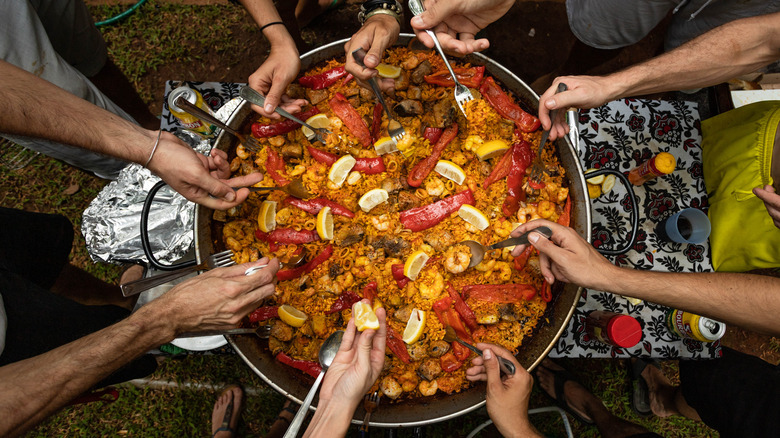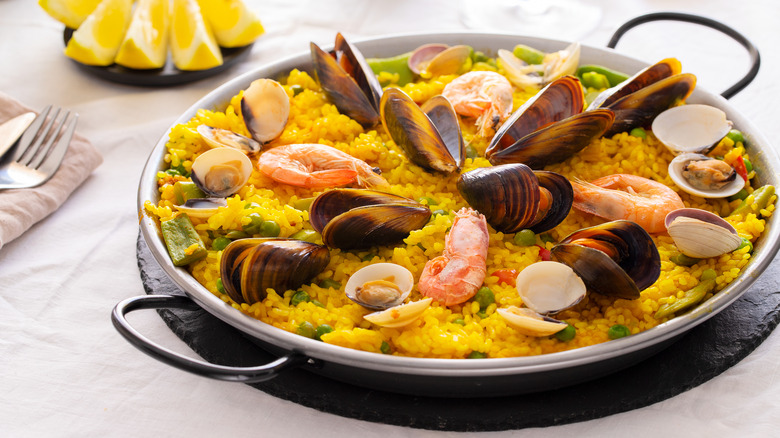The Origin Of Paella's Name May Be More Simple Than Theories Suggest
Paella (pronounced pai·AY·uh) is a historic Spanish dish that was created to be shared. Everyday Food Blog notes the dish was originally created by laborers in the rice fields near Valencia in Southern Spain. Workers would prepare a large batch of paella over an open fire to be enjoyed by all as a mid-day meal while working in the fields. Everyone gathered around the large pan with their own spoon to enjoy a mixture of rice, beans, vegetables, and meats that were harvested and foraged locally, according to Food'n Road. It wouldn't be until richer Spaniards got their hands on the dish that it would take on more modern ingredients like seafood and saffron.
This form of communal dining is still considered the traditional way to enjoy paella, per Food'n Road. It certainly took a crowd to finish off the world's largest paella which was made in 1992. It took more than 100,000 people to clean out the 65-foot wide pan (via Guinness World Records). While paella's history is fairly settled, a more widely debated aspect of the dish is the origin of its name.
The name Paella likely has Latin roots
There are many theories about where the name "paella" came from. One theory shows the lasting impact of the Moors in Spain. Everyday Food Blog notes that some attribute the name to the Granadan Arabic word "baqiyyah" which translates to "leftovers." The legend goes that Moorish servants would take the leftover scraps of food from grand feasts hosted by the nobility, and mix them with rice to take back home to their families. This may be somwhat fitting since the Moors first introduced rice to Spain over 1200 years ago, and the modern Spanish word for rice (arroz) may actually be derived from arabic.
The most likely origin of paella's name though is far less exciting. Kitchen Project reports that the word paella actually refers to the flat-bottomed pan that the rice is cooked in. This gives support to the theory that paella is derived from the latin "patella" which means pan or plate. Everyday Food Blog notes that Valencian Spanish also has a heavy French influence. It's possible the old french word "paelle", which also translates to pan, may have contributed as well.

